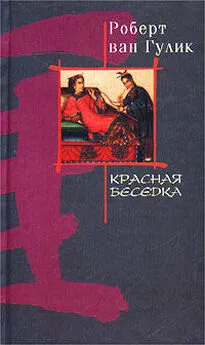Friends (2013) - Adams, Robert
- Название:Adams, Robert
- Автор:
- Жанр:
- Издательство:неизвестно
- Год:2013
- ISBN:нет данных
- Рейтинг:
- Избранное:Добавить в избранное
-
Отзывы:
-
Ваша оценка:
Friends (2013) - Adams, Robert краткое содержание
Adams, Robert - читать онлайн бесплатно полную версию (весь текст целиком)
Интервал:
Закладка:

Contents
Introduction 9
Hattie at Kahlkopolis by Robert Adams 11
A Vision of Honor by Sharon Green 29
Rider on a Mountain by Andre Norton 56
Maureen Birnbaum on the Art of War by George Alec Effinger 72
The Last Time by Joel Rosenberg 95
High Road of the Lost Men by Brad Linaweaver 104
Yelloweye by Steven Barnes 127
Ties of Faith by Gillian FitzGerald 167
The Courage of Friends by Paul Edwards 192
The Swordsman Smada by John Steakley 208
Sister of Midnight
by Shariann Lewitt 242
Nightfriend
by Roland J. Green and John F. Carr 256
Introduction
“Mr. Adams, sir, where do you get your ideas?”
I often am sorely tempted to answer, “Why, from the Heroic Adventures Division of the Ideas for Writers Company up in West Putrid, Massachusetts, of course.” But I don’t, no, I go through the old process of trying to explain mental creativity to folks whose minds are not bent that way and so cannot understand me. Actually, to those of you readers who can understand it, it’s simple and miraculous: the germ of HORSECLANS came from a dream; after that, I have just written the kind of thing that 1 would like to read, and, apparently, my reading tastes match those of a fairish number of other readers.
Naturally, my own experiences of life, nearly fifty years of reading both fiction and nonfiction, observation and a soaring imagination are also necessities in producing books of the sorts 1 write. A good memory is a distinct asset, too. The larger and the more diverse the personally owned reference library, the better, I feel, and this is why I have to keep moving into larger houses every few years.
I wrote the first HORSECLANS book in late 1973 and sold it in 1974. It was published by Pinnacle Books, Inc., and released in June 1975. The second book in the series was released in 1976 and the third in 1977. 1 parted company with Pinnacle in 1978, and the fourth book in the series (as well as all succeeding ones, plus new editions of the first three) was published by Signet Books. Book fifteen was published by Signet in July 1986. I have recently completed the sixteenth and am at work on the seventeenth. Something over three million HORSECLANS books are now in print from Signet alone, and so I thought that the time had come to let other writers into my world, other professionals who also happened to be admirers of HORSECLANS. This was the genesis of Friends of the Horseclans.
I just might have been able to carry off this project alone, but it would have gone much more slowly and been much more difficult without the enthusiastic assistance of my coeditor and, incidentally, wife, Pamela Crippen Adams.
To date, HORSECLANS covers some thousand years and so is rife with loose, dangling story ends and gaping, blank spaces; 1 am slowly tagging onto a few of the former and filling a few of the latter, but 1 would have to live and write for another fifty-odd years in order to do it all. Therefore, I am getting help from my friends, the twelve friends whose splendid work you will read in these following pages.
Battle at Kahlkopolis
by Robert Adams
With the retreat of the late, unlamented King Zastros’ huge army from Karaleenos back into what once had been the Southern Kingdom of the Ehleenoee, the surviving thoheeksee of the kingdom set about putting their hereditary lands to order and productivity, filling titles vacated by war, civil war, assassinations, suicides and disease, and in general preparing the southerly territories for the merger with the victorious Confederation of the High Lord, Milos of Morai.
Chief mover and the closest thing to a king that the Southern Ehleenoee now owned was Thoheeks Grahvos tohee Mehsee-polis keh Eepseelospolis. After taking into consideration all of the varied infamy that had taken place in the former capital, Thrahkohnpolis, Grahvos had declared the new center of the soon-to-be Southern Confederated Thoheekseeahnee to be situated at his own principal city of Mehseepolis.
Now that city was become a seething boil of activity— sections of old walls being demolished, the city environs being expanded and new walls going up to enclose them, troops camped far and wide around the city, existing public (and not a few private) buildings become beehives with the comings and the goings of Ehleenoee nobility, their retainers and their staffs, as well as the host of attendant functionaries necessary to the operation of this new capital city.
One day, some years after the announcement of the new capital city, two noblemen sought audience with Thoheeks Grahvos and his advisers. The one of these two was a greybeard, the other a far younger man, but the shapes and angles of the faces—eyes, noses, chins, cheekbones—clearly denoted kinship between the two, close kinship. The old man was tall—almost six feet—his physique big-boned and no doubt once very powerful, with the scars of a proven warrior, at least a couple of which looked to be fairly new.
The harried assistant chamberlain knew that he had seen this man or someone much like him before, but could not just then place who or where or when, and the petitioner refused to state his name or rank, only saying that he was a man who had been unjustly treated and was seeking redress of the new government. The only other word he deigned to send in to the thoheeksee was cryptic.
“Ask the present lord of Hwailehpolis if he recalls aught of a stallion, a dead man’s sword and a bag of gold.”
When, on his second or third trip into the meeting room, the assistant remembered to ask this odd question, Thoheeks Vikos of Hwailehpolis leaped to his feet and grabbed both the man’s shoulders, hard, demanding, “Where is this man? What would you estimate his age? Is he come alone or did others bring him?”
When the now-trembling functionary had scuttled off to fetch back the oldster, Vikos explained his actions to his curious peers.
“It was after that debacle at Ahrbahkootchee, in the early days of the civil war. I had fought through that black day as an ensign in my late brother’s troop of horse, and in the wake of our rout by King Rahndos’ war-elephants, I like full many another found myself unhorsed and hunted like a wild beast through the swamps of the bottom lands. It was nearing dusk and I was half-wading, half-swimming yet another pool when I heard horsemen crashing through the brush close by to me. Breaking off a long, hollow reed, I went underwater, as I had done right often that terrifying day, but I knew that if they came at all close, I was done this time, for the water of the pool was clear almost to the bottom, not murky as had been so many others, nor was the spot I had to go down very deep—perhaps three feet, perhaps less.
“Suddenly, I became aware that the legs of a big horse were directly beside my body, and, not liking the thought of a probing spear pinning me to the bottom, to gasp out my life under the water, I resignedly surfaced, that I might at least die with air in my lungs.
“I looked up into the eyes of none other than Komees Pahvlos Feelohpohlehmos, himself!
“In a voice that only I could hear, he growled, ‘Stay down, damn fool boy!’ Then he shouted to the nearing troop-t-is, ‘You fools, search that thick brush, up there where the stream debouches. This pool is clear as crystal, nothing in it save fish and crayfish, so I’m giving my stallion a drink of it.’
“Then the komees deliberately set his horse to roiling the sediments of the bottom, clouding the water, while he did the same with the butt of his lance. He dropped a sheathed, jeweled sword upon me, and when I brought my face up to where 1 could see him, he tossed me a small, heavy bag and said, ‘You may well be the last of your House, after this day, young Vikos. There is a bit of gold and a good sword. Wait until full dark and then head northwest; what’s left of the rebel army is withdrawing south and southeast. If you can make it up to Iron Mountain, you’ll be safe. And the next time you choose a warleader, try to choose one with at least a fighting chance to win. God keep you now.’ ”
Thoheeks Grahvos nodded. “Yes, it sounds of a piece with all else 1 know of the man. For all his ferocity and expertise in the waging of war for the three kings he served in his long career, still was he ever noted to be just and, when possible, merciful. Strange, I’d assumed him dead, legally murdered by Zast'ros as were the most of his peers. It’s good to know that at least this one of the better sort survived the long bloodletting. Who was his overlord, anyway? If he’ll take the proper oaths, Komees Pahvlos the Warlike would make us a good thoheeks , say I.”
“And so,” concluded old Komees Pahvlos, “when it was become obvious that these usurping scum were determined to not only deny young Ahramos here his lawful patrimonies, but to take his very life as well, had they the chance, I knew that stronger measures were required, my lords.
“Could but a single warrior do it alone, it were done already. Old, I assuredly am—close to seventy years old— but I still am tough and the hilt of my good sword has not become a stranger to my hand. But a disciplined, well-armed and -led force will be necessary to dislodge this foul kakistoc-racy that presently squat in Ahramos’ principal city and control his rightful lands. And due to reverses, I no longer own the wherewithal to hire on fighting men, equip and mount and supply them with the necessities of warfare.”
“But I will wager, Strahteegos Komees Pahvlos,” said Thoheeks Grahvos, “that nothing has robbed you of your old abilities to lead armies, plan winning battles and improvise stunning tactics on the spur of the moment: 1 had meant to ask you to take oaths to this council and the Confederation, then assume one of the still-vacant thoheekseeahnee , but if you’ll indeed take those oaths, 1 have a better, far more useful task in mind for you, now.”
Chief Pawl Vawn of Vawn sat at a table in a tent in the camp of Seentahgmahrtees Tomos Gonsalos, senior officer of those Confederation forces sent south to aid the thoheeksee in securing and maintaining peace. With them at table sat Ahnteeseentahgmahrtees of Infantry Guhsz Hehluh, and Thoheeks Portos, figurehead commander of these alien troops deep in the heart of the former Southern Kingdom.
A meal had been eaten while the men talked, and now, while a bottle of sweet wine circulated, the Horseclansman asked, “If this Pahvlos is such a slambang strahteegos and all, how come he didn’t tromp you all proper for his king and end it all before it got started?”
“Oh, he did, he did, my good Pawl,” said Portos, “in the beginning, years ago. I was a part of that rebel army, then, 1 know. It required years and the—then unknown—help of the Witchmen to put Zastros' army back together in a shape fit to once more face Komees Pahvlos; and that, finally, we did not have to face him was a great relief to full many a one of us, believe me. By that time, all of the ancient royal line was extinct and Thoheeks Fahrkos, who had seized the crown and the capital, had dismissed the royal strahteegoee. Most of the remaining royal troops—the only regular forces the kingdom had had—deserted, then marched away with their officers, so all Fahrkos had when we brought him to bay was his personal warband, such as it was.”
Читать дальшеИнтервал:
Закладка:









